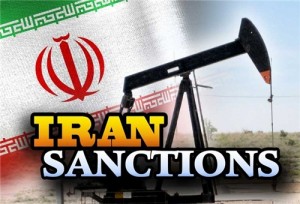 The Obama administration penalized nearly three dozen companies and individuals in eight countries on Thursday, accusing them of evading Iranian sanctions. It was the administration�s most extensive enforcement action to target Iran since a temporary international agreement on that country�s disputed nuclear program was completed in November and�put into effect last month.
The Obama administration penalized nearly three dozen companies and individuals in eight countries on Thursday, accusing them of evading Iranian sanctions. It was the administration�s most extensive enforcement action to target Iran since a temporary international agreement on that country�s disputed nuclear program was completed in November and�put into effect last month.Announced by the�Treasury Department�office that oversees sanctions enforcement, the punishments were at least partly devised to send a message that the United States is not relaxing economic pressures on Iran, apparently to blunt an atmosphere of optimism that has resulted from the temporary nuclear agreement. This week, Secretary of State John Kerrycriticized France�after it sent a large trade delegation to Iran.
�Today�s action should leave no doubt that those who seek to evade our sanctions support Iran�s nuclear program or assist in Iran�s promotion of international terrorism will continue to be called to account,� a senior Treasury Department official said in a conference call with reporters.
A Treasury announcement said the enforcement action had singled out �a diverse range of entities and individuals located around the world� for evading American sanctions aimed at Iran.
On Friday, Iran criticized the announcement. Alireza Miryousefi, a spokesman for Iran�s United Nations Mission, called it �yet another instance of the lack of the U.S. government�s good faith� as preparations are underway for negotiations on a permanent solution to the nuclear dispute.
In a Facebook posting, Mr. Miryousefi also called the Treasury�s action �an indication that the U.S. wants to impose a negative atmosphere to the negotiations. This action will not only fail, but also will face an Iranian reciprocal answer.�
An intense political debate is underway over whether the temporary deal will help or hinder negotiations with Iran on a permanent agreement to resolve the dispute over the nuclear program, which Western nations suspect is a cover for creating the ability to make atomic bombs, despite Iran�s repeated denials.
Administration critics in the United States and Israel have denounced the temporary agreement�s provisions for some limited sanctions relief, arguing that the relaxation disproportionately favored Iran and helped it in ways that make the country�s leaders less likely to negotiate a permanent accord.
Known as the�Joint Plan of Action, the temporary agreement was devised to allow more time to negotiate a permanent accord.�It allows Iran access�to $4.2 billion of Iranian money impounded in overseas banks and eases restrictions on the country�s petrochemical, automotive and precious metals industries. In return, Iran froze much of its uranium enrichment activities and will provide more access to United Nations nuclear inspectors.
Iran and the so-called P5-plus-1 group, which includes the five permanent members of the United Nations Security Council � Britain, China, France, Russia and the United States � plus Germany, are now planning negotiations on a permanent solution to the dispute over Iran�s nuclear program, with the first session scheduled later this month.
The Treasury said its latest actions �reflect the United States� sustained commitment to continue enforcing our existing sanctions as the P5+1 and Iran work toward a comprehensive solution to address the international community�s concerns over Iran�s nuclear program.�
Under American sanctions laws and regulations, violators face severe penalties, including restrictions on doing business in the United States and the seizure of any property under American jurisdiction.
Eighteen businesses and 14 individuals were identified as violators in the Treasury announcement, in a list of countries that included Turkey, Spain, Germany, Georgia, Afghanistan, the United Arab Emirates, Liechtenstein and Iran. Some were accused of helping Iran circumvent American sanctions on financial transactions and oil sales. Others were accused of involvement in what the United States regards as Iran�s illicit activities in Afghanistan and Syria.
A Spanish company, Advance Electrical and Industrial Technologies SL, and its sole shareholder, Pere Punti, were penalized for helping Iran procure specialized nuclear equipment. A Turkish citizen, Ali Canko, was penalized for helping an Iranian company�s attempts to reverse-engineer an armed speedboat to be used by Iran�s Islamic Revolutionary Guards Corps. An Iranian-owned airline in the United Arab Emirates, Blue Sky Aviation, was accused of obscuring banned financial payments for aircraft, engines and parts.
An Uzbek citizen, Olimzhon Adkhamovich Sadikov, was identified by the Treasury as a facilitator of what it called an Al Qaeda network in Iran that operates with the knowledge of Iranian authorities � even though they have a well-known animosity toward Al Qaeda.
The Treasury said this network had helped supply money to Al Qaeda and affiliates, including the Nusra Front in Syria, which is among the groups fighting to topple President Bashar al-Assad, an Iranian ally.
Asked about this seeming anomaly, a senior Treasury official acknowledged the �somewhat unique posture of this network in Iran� and said the Iranian authorities might not be fully aware of its activities, which appeared to conflict with �what the Iranian government has been looking to foment within Syria.�
By The New York Times
The Iran Project is not responsible for the content of quoted articles










